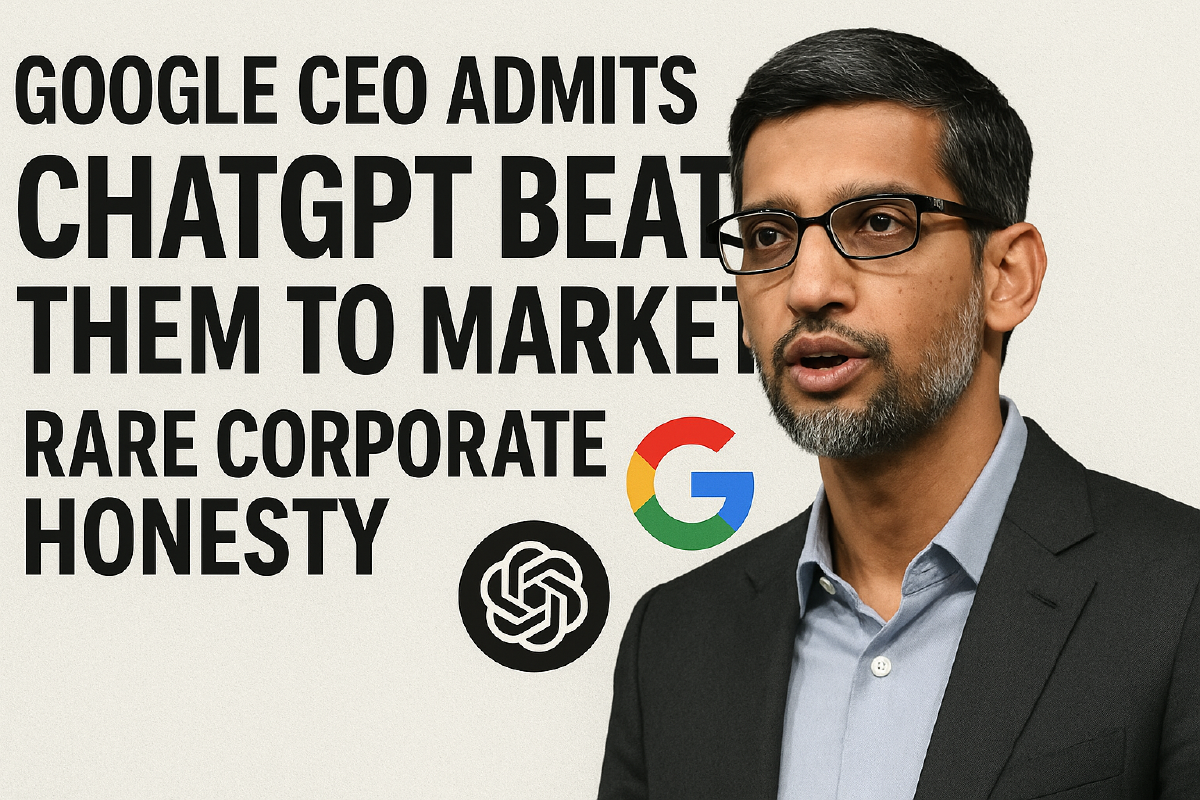It’s not every day a tech CEO admits getting beaten to the punch. But that’s exactly what happened when Google CEO Sundar Pichai acknowledged that ChatGPT outpaced Google’s AI initiatives, particularly Bard, in reaching the market.
What He Actually Said#
Pichai’s admission wasn’t a surrender speech. It was recognition of an uncomfortable truth: Google had the research, the talent, and the infrastructure to launch conversational AI first. But OpenAI shipped it faster.
That’s the part that stings. Google invented the transformer architecture that powers ChatGPT. They published the papers. They built similar systems internally. Then they watched OpenAI turn that research into a product people actually used while Google was still deliberating.
Why Speed Mattered#
In AI, first mover advantage isn’t just marketing. It’s data. Every conversation with ChatGPT made the product better. Every user complaint refined the model. By the time Google launched Bard, OpenAI had months of real-world feedback baked into their system.
Google was being careful. OpenAI was being bold. Turns out bold wins when the alternative is being late to your own revolution.
The Honesty Part#
Pichai could have spun this differently. Talked about Google’s “responsible AI principles” or “thoughtful deployment.” Instead, he said the quiet part out loud: they got beat.
That kind of transparency is unusual in tech leadership. Most CEOs would rather blame anything but execution. Pichai owned it. Whether that’s genuine humility or strategic repositioning for Google’s catch-up efforts, it’s at least honest.
What It Means#
This admission signals something bigger than one product launch. It’s evidence that even companies who own the underlying research can lose the implementation race. Having the best scientists doesn’t matter if you can’t ship what they build.
Google’s playing catch-up now with Gemini. They’re moving faster, taking more risks, and trying to make up ground. But the lesson is clear: in AI, hesitation costs more than mistakes.


